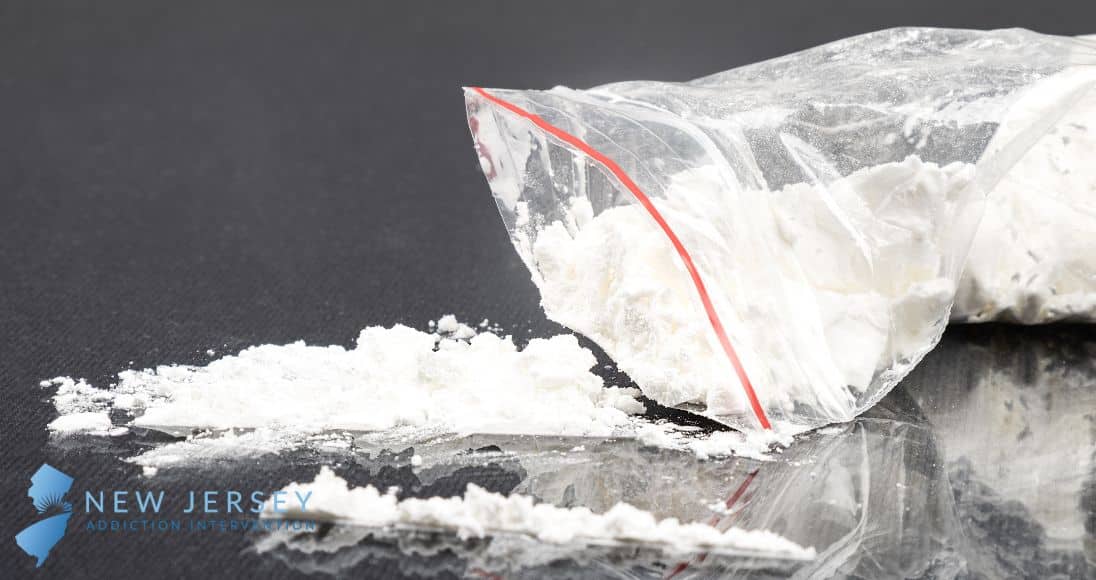Angel dust is a slang term for an illegal drug known as phencyclidine (PCP). It is considered a dissociative drug that many people abuse to experience mind-altering effects. PCP got the name “angel dust” because it is a white crystalline powder.
While angel dust was used in the 1950s as an anesthetic, it became illegal because of the dangerous effects it was causing.[1] Patients began to display violent behavior, agitation, and delusional thinking. Unfortunately, the drug made its way onto the streets, causing people to begin abusing it.
According to the U.S. Department of Justice (DOJ), 6 million people aged 12 or older have used angel dust at some point in their lives.[2]
Abusing angel dust can be incredibly dangerous, as it causes effects like detachment from reality, dissociation, and auditory or visual hallucinations. You might become aggressive or violent when you are high on PCP because you feel detached from reality.
In this article, you will learn:
- What phencyclidine is
- The effects of angel dust
- Whether you can get addicted to angel dust
- The risks of abusing PCP
What is PCP (Angel Dust)?
Angel dust is a dissociative anesthetic that can lead to a variety of adverse effects, including detachment from reality, hallucinations, delusions, memory loss, and aggressive behavior. People might abuse it to experience feelings of euphoria, increased energy, and hallucinations.
Phencyclidine belongs to the same class of drugs as ketamine. In fact, veterinarians often use both substances as anesthesia for their patients.[1] That said, PCP or angel dust is not safe to be consumed by humans.
While PCP usually comes as a powder, it can also be found in liquid form. You might snort or smoke PCP powder, while the liquid form is often smoked after a cigarette or marijuana joint is dipped in it. If you smoke cigarettes with PCP dipped in them, it is often mixed with embalming fluid, which is known as “smoking wet.”[3]
What are the Effects of PCP?
Many people claim that angel dust is one of the most dangerous substances to abuse. This is because even small doses of the drug can cause you to feel detached from reality, putting you at risk of engaging in behaviors that will harm yourself or others. PCP also blocks NMDA receptors in your brain, making you unable to feel sensations of pain and emotions while making learning and forming memories difficult.[4]
The possible side effects of small to moderate doses of PCP include:
- Visual and auditory hallucinations
- Feelings of euphoria
- Increased energy
- Mood swings and agitation
- Detachment from reality
- Numbness of arms and legs
- Slurred speech and coordination issues
- Feeling extremely strong and invulnerable
- Staring blankly or rapidly blinking
- Stunting of emotions
- Stumbling while walking
- Psychosis and violent behavior
Is PCP Addictive?
Phencyclidine or angel dust is considered a highly addictive drug. As a result, it is considered a Schedule II drug under the Controlled Substances Act.[2] Abusing PCP long-term will lead to psychological and physical dependence.
If you are addicted to PCP, you will experience psychological dependence, cravings, and a compulsive desire to abuse it. You will also experience withdrawal symptoms if you suddenly stop using it.
The withdrawal symptoms associated with PCP addiction include:
- Increased body temperature and excessive sweating
- Seizures
- Muscle pain and twitching
- Involuntary eye movements
- Agitation or aggressive behavior
- Hallucinations
- Depression and suicidal thoughts
- Memory and cognitive issues
- Weight loss
- Speech impairment
Since it is possible to experience seizures when withdrawing from PCP, you should always seek help from a medical detox center.
What are the Risks of Abusing Angel Dust?
One of the most commonly experienced risks of angel dust abuse is the development of psychosis, leading to detachment from reality, hallucinations, and delusions. Substance-induced psychosis can lead to accidental injury or suicide.[5]
Once you are addicted to PCP, you are more likely to begin abusing large doses. This can lead to an overdose, which may include symptoms like:[6]
- Decreased blood pressure, heart rate, and breathing rate
- Nausea and vomiting
- Blurry vision
- Rapid eye movements
- Drooling
- Dizziness and balance issues
- Violent behavior toward yourself or others
- Seizures
- Coma
- Death
Other long-term risks of abusing angel dust include seizures, coma, kidney failure, cardiovascular issues, and mental health emergencies like suicide attempts. Because PCP abuse is so dangerous, you should always seek help from a professional addiction treatment program to achieve long-lasting sobriety.
Find Help for Angel Dust Abuse and Addiction
If you or a loved one suffers from PCP addiction, it’s time to seek help from a drug rehab center. At New Jersey Interventions, we can connect you with a top-rated addiction treatment program in your area. We can also help with professional interventions to convince a loved one that they need help.
Contact us today for more information on how we can help you recover from angel dust addiction.
References:
- Sciencedirect.com: Phencyclidine- an overview
- The U.S. Department of Justice (DOJ): PCP Fast Facts
- The National Library of Medicine (NLM): “Smoking Wet”
- Researchgate.net: Effects of NMDA receptor inhibition by phencyclidine on the neuronal differentiation of PC12 cells
- Frontiersin.org: Substance-Induced Psychoses: An Updated Literature Review
- Emedicine.medscape.com: Phencyclidine Toxicity
Medically Reviewed: June 25, 2024

All of the information on this page has been reviewed and verified by a certified addiction professional.

